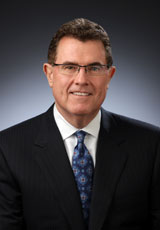That’s the story so far.
A three-year, multimillion-dollar experiment to improve 20 struggling HISD schools yielded big gains in math and limited progress in reading, according to partial results of a study released Wednesday.
Now, Superintendent Terry Grier and the school board face decisions over what, if any, changes to make to the district’s nationally watched Apollo program, particularly to improve students’ literacy skills and perhaps to reduce the price tag.
“You’ve got to keep trying different things on Apollo,” said the researcher, Harvard University economist Roland Fryer. “We are not all the way there yet. Even if we were all the way there, I bet you can do it … cheaper.”
[…]
“We’ve had a lot of success with this – it far exceeded my expectations – but we have 282 schools,” Grier said, acknowledging complaints that Apollo was too narrowly focused.
Grier said he’d like to focus on helping younger students before they fall too far behind and on cutting costs to reach more children across the district. The superintendent’s ideas include year-round kindergarten for some, tutoring before fourth grade and less expensive online tutoring.
Fryer, who helped design the Apollo program, plans to release his final study on Nov. 1.
He shared a nine-page executive summary and presented an overview of his findings, which mirrored his earlier research, in Houston Wednesday.
“The bottom line is, math is very encouraging,” Fryer said. “Reading is still puzzling to me. It’s puzzling to a lot of people.”
In math, the stubborn achievement gap between minority and white students is on pace to close this year at the Apollo elementary schools, Fryer found. For older students, the gap in math performance has closed by roughly half.
In reading, Fryer said, the gains were significantly less, with the achievement gap narrowing by 10 percent to 20 percent.
School Zone has a copy of Dr. Fryer’s executive summary. Cost is definitely an issue – as the story notes, the HISD tax rate hike is due in part to the district paying for a continuation of Apollo out of general revenue. Initial funding came from grants and private donors. If this is to be sustainable going forward, HISD will need to get the cost of the program under control. It’s worth it to pay for a program that works, but ideally it would be district-wide, and it’s far from clear if that can be affordable. As for private donations, I wonder if the data Dr. Fryer has now provided is satisfactory to the Houston Endowment, which has been sitting on a $3 million check. I think there’s a lot here to be optimistic about, but as always it will come down to what we can and are willing to pay for. Hair Balls has more.


Wouldn’t it be more convincing if the study over the program’s effectiveness were conducted by someone other than the person who gave birth to it? I mean, I’m not saying this program is not effective, I’m just saying it would be more respectful to those of us trying to sort through the plethora of edu-fads being thrust forward at us if an independent third party were to review their effectiveness.